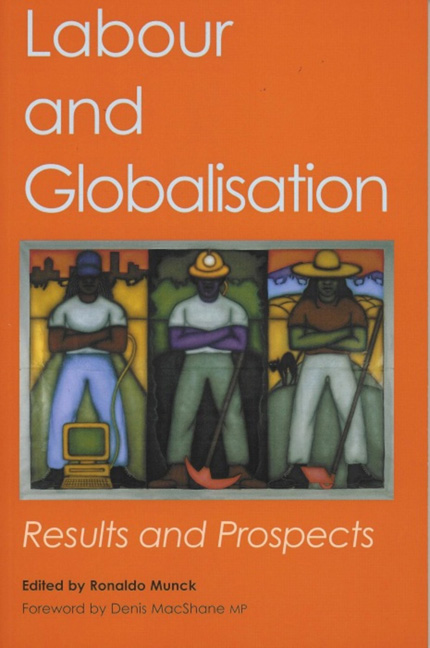Book contents
- Frontmatter
- Contents
- Acknowledgements
- Foreword
- Notes on the Contributors
- List of Abbreviations
- Introduction: Globalisation and Labour Transnationalism
- Part I Global Dimensions
- Part II Spatial Dimensions
- 5 Re-Scaling Trade Union Organisation: Lessons from the European Front Line
- 6 Australia and Beyond: Targeting Rio Tinto
- 7 International Solidarity and Labour in South Africa
- 8 Labour and NAFTA: Nationalist Reflexes and Transnational Imperatives in North America, 1991–1995
- Part III Social Dimensions
- Index
6 - Australia and Beyond: Targeting Rio Tinto
from Part II - Spatial Dimensions
- Frontmatter
- Contents
- Acknowledgements
- Foreword
- Notes on the Contributors
- List of Abbreviations
- Introduction: Globalisation and Labour Transnationalism
- Part I Global Dimensions
- Part II Spatial Dimensions
- 5 Re-Scaling Trade Union Organisation: Lessons from the European Front Line
- 6 Australia and Beyond: Targeting Rio Tinto
- 7 International Solidarity and Labour in South Africa
- 8 Labour and NAFTA: Nationalist Reflexes and Transnational Imperatives in North America, 1991–1995
- Part III Social Dimensions
- Index
Summary
Corporate globalism creates new imperatives for labour and other movements. The strengthening of transnational sources of corporate power, hand in glove with strengthened inter-state regulations to promote corporate interests, intensifies rates of accumulation across all sectors. Corporations have exploited the relative mobility of capital to put progressive governments and nationally organised labour movements onto the defensive. The emergence of new ‘exit options’, as more than one third of private capital goes transnational, greatly enhances corporate power (ILO, 1997; UNCTAD, 1993). There is an intensified search for ‘greenfield’ sites of accumulation, especially in the mining industry (Otto, 1998), threatening noncommodified practices on the far peripheries of capitalist accumulation, and undermining the very survival of peoples. Corporations have very successfully exercised their structural power ‘as a weapon in the domestic space of class conflict’: national class compromises in the ‘global North’ have been overwhelmed by the new drive for ‘global competitiveness’, pitting workers against workers in the ‘global market’ for capital (Moran, 1998: 68; Gill and Law, 1989). At the same time, increased rates of exploitation and a global diffusion of industrialism have accelerated the rate of exhaustion of societies and environments, leading to crises of reproduction.
Reflecting these pressures there has been a growing debate about the need for labour movements to reground themselves as cross-national social movements (ILO, 1997: 228; Moody, 1997; Munck, 2000; Waterman, 1998, 1999). The mobility gap that so disempowers labour movements can only be bridged by concerted resistance across sites of domination. This means bridging very different logics of struggle in the common cause of contesting global accumulation. Struggles against exploitation, often vested in labour movements, need to be intertwined with struggles against exhaustion and also with struggles for survival. There is also a need to shift across national borders, and in this respect, labour and other movements can become consciously transnational, matching the mobility and reach of the agents of corporate globalism.
There is an urgent need to move away from an industrial focus for the labour movement, where labour is forced onto the defensive, caught in the constraints of ‘historic compromises’ that no longer deliver. The alternatives require the formation of new alliances for the labour movement in other social movement sectors, and the construction of stronger cross-national linkages, to mirror the scope of transnational capital.
- Type
- Chapter
- Information
- Labour and GlobalisationResults and Prospects, pp. 105 - 127Publisher: Liverpool University PressPrint publication year: 2003



